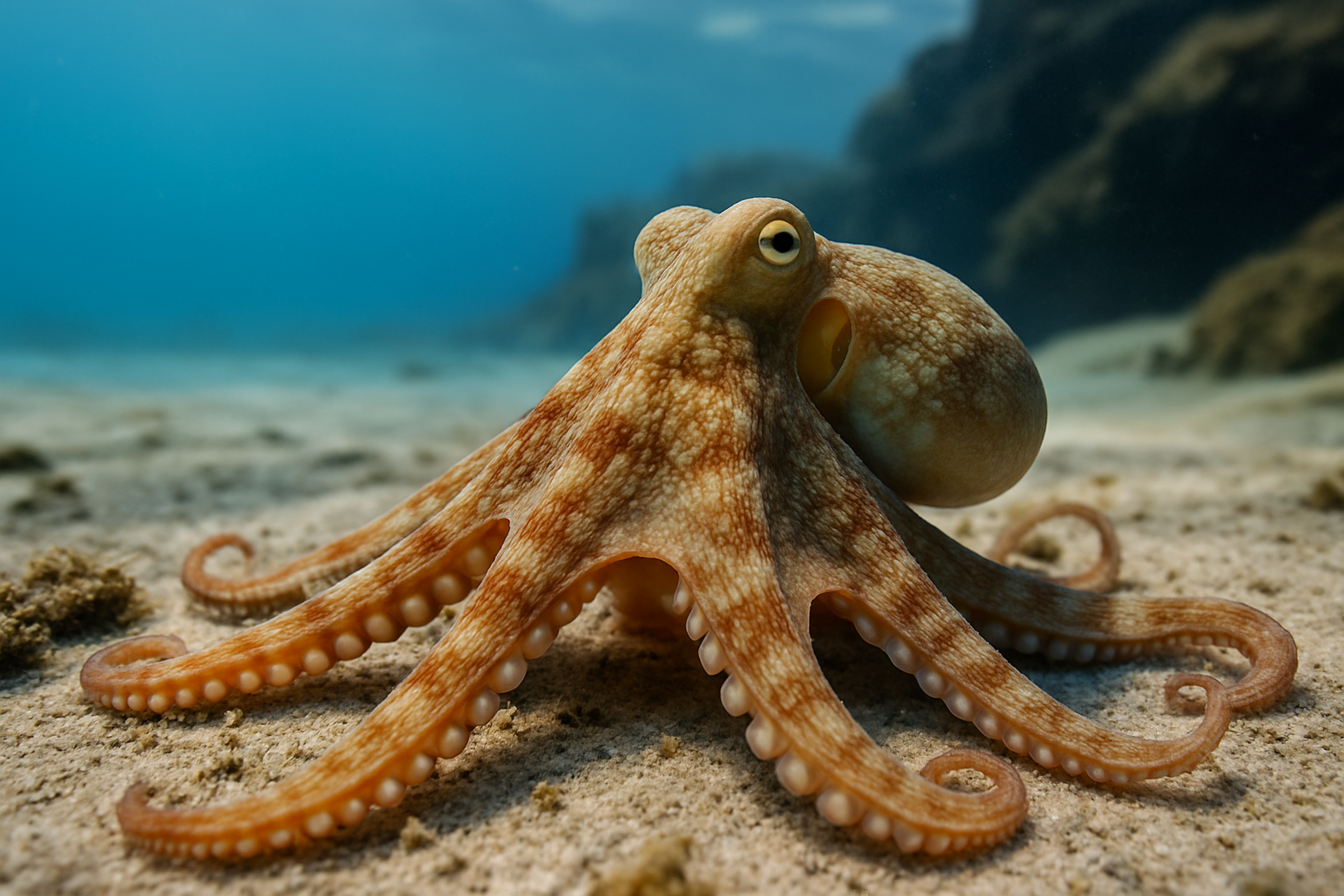Transformative Tails: Understanding the Adaptive Abilities of Octopuses
Octopuses, the intelligent, eight-armed masters of camouflage, often remain a mystery due to their elusive and solitary nature. This article delves into their fascinating world, focusing on their incredible adaptive abilities and their profound influence on marine ecosystems.

A Dive into History: The Octopus Evolution
Octopuses, belonging to the Cephalopoda class, have a rich history dating back to the late Cambrian period, approximately 500 million years ago. They have evolved into 300 diverse species, each possessing unique skills and characteristics. The most significant evolutionary leap in octopuses is their adaptive intelligence, which allows them to thrive in various marine environments, from shallow tidal pools to the abyssal depths.
Present Day Marvel: The Octopus Adaptation
Octopuses are renowned for their ability to change color and texture instantaneously, a trait that aids in both predation and defense. Their chromatophore-filled skin can imitate a wide range of patterns and colors, making them the ultimate masters of disguise. Recent studies reveal that octopuses can also alter their RNA - a phenomenon not seen in any other invertebrates - allowing them to adapt swiftly to changing environments.
Market Impact: The Role of Octopuses in Fisheries
Octopuses are commercially valuable, playing a significant role in global fisheries. Their demand has been growing, with an estimated market value of $624.3 million in 2020. However, this burgeoning market has raised concerns about unsustainable fishing practices and their impact on octopus populations and marine ecosystems.
Unmasking the Facts: Debunking Octopus Myths
Despite their popularity, misconceptions about octopuses abound. One widespread myth is their supposed short lifespan. While some species live for less than a year, others like the giant Pacific octopus can live up to five years. Moreover, octopuses are often portrayed as aggressive and dangerous, yet most species are quite docile and prefer to avoid confrontation.
Looking Ahead: Conservation Efforts and Future Research
Increasing awareness about the ecological importance of octopuses has spurred various conservation efforts. However, more research is needed to understand their complex behaviors and adaptation mechanisms. Such knowledge can contribute to sustainable fishing practices, ensuring the longevity of these remarkable creatures.
In conclusion, octopuses, with their extraordinary adaptive abilities and significant ecological role, continue to intrigue and inspire. As we strive to unveil more about these enigmatic beings, it is crucial to consider their conservation and the protection of their marine habitats. Through understanding and respect, we can ensure the survival and prosperity of these fascinating marine maestros.
Note: The accompanying image of a dog being walked on a leash does not correspond with the article’s subject matter about the adaptive abilities of octopuses. We apologize for any confusion caused by this discrepancy.




